November 28 stands as one of history’s most eventful days, witnessing the rise and fall of empires, groundbreaking discoveries, and moments that shaped our modern world across centuries of human achievement.
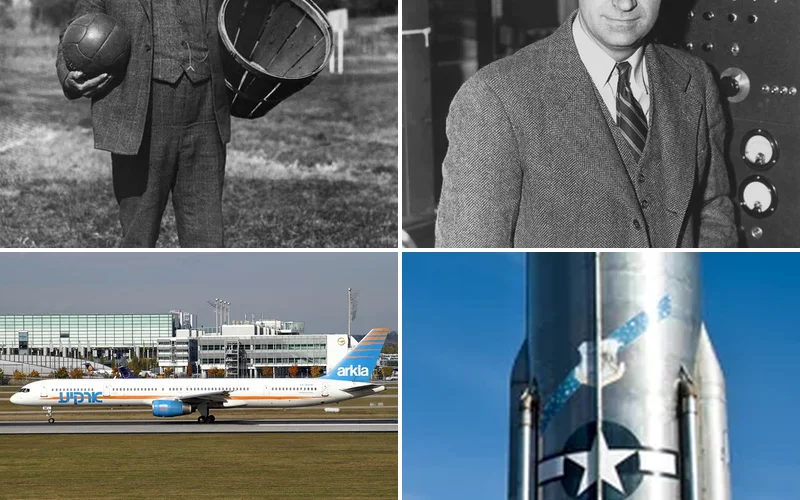
Politics and Government Events on November 28
1905 – Irish Nationalist Arthur Griffith Founds Sinn Féin

Arthur Griffith established Sinn Féin as a political party with the ambitious goal of creating a dual monarchy in Ireland. This revolutionary organization would fundamentally reshape Irish politics for generations to come.
The party’s founding marked a crucial shift toward organized Irish nationalism. Griffith’s vision would eventually evolve into the movement that secured Irish independence from British rule.
1912 – Albania Declares Independence from Ottoman Empire
The Albanian people proclaimed their independence from centuries of Ottoman rule on this historic date. National leaders gathered to establish the foundations of modern Albanian statehood.
This declaration ended over 400 years of Ottoman control over Albanian territories. The newly independent nation faced immediate challenges in establishing governmental structures and international recognition.
1917 – Estonian Provincial Assembly Declares Sovereignty
The Estonian Provincial Assembly boldly declared itself the sovereign power of Estonia during the chaos of World War I. This act of defiance occurred while German forces occupied much of the territory.
Estonian leaders seized the opportunity presented by Russian revolutionary turmoil to assert national autonomy. Their declaration laid the groundwork for Estonia’s eventual independence and statehood.
1919 – Lady Astor Elected to British Parliament
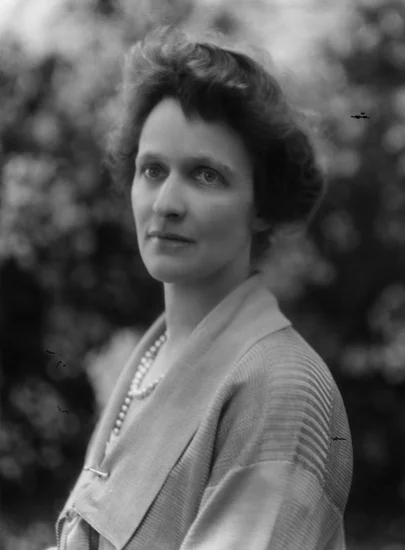
Lady Nancy Astor became the first woman to actually sit in the British House of Commons after winning her election. Her historic victory broke centuries of male-only parliamentary tradition.
Though Countess Markievicz had been elected earlier, she refused to take her seat in protest. Lady Astor’s groundbreaking presence opened parliamentary doors for future generations of women politicians.
1943 – Tehran Conference Begins
President Franklin Roosevelt, Prime Minister Winston Churchill, and Premier Joseph Stalin convened in Tehran for crucial wartime strategy discussions. The three Allied leaders met to coordinate military operations against Nazi Germany.
Their deliberations would shape the final phases of World War II and post-war global arrangements. The conference established critical agreements about opening new European fronts and future territorial boundaries.
1989 – Communist Party of Czechoslovakia Abandons Power Monopoly
The Communist Party of Czechoslovakia announced its abandonment of political monopoly amid massive popular protests. This pivotal moment marked the peaceful triumph of the Velvet Revolution.
Citizens had demanded democratic reforms through weeks of sustained demonstrations across the country. The party’s capitulation paved the way for Czechoslovakia’s rapid transition to democracy and market economics.
1990 – Margaret Thatcher Resigns as British Prime Minister
Margaret Thatcher resigned as Conservative Party leader and Prime Minister after eleven transformative years in office. Her resignation followed mounting party opposition to her leadership style and European policies.
John Major succeeded her in both positions, inheriting a dramatically changed Britain. Thatcher’s departure marked the end of an era that had reshaped British politics and society.
1991 – South Ossetia Declares Independence from Georgia
South Ossetia proclaimed its independence from Georgia amid rising ethnic tensions and political instability. The declaration sparked immediate conflict between Georgian forces and South Ossetian separatists.
International recognition of this independence remained limited for decades. The dispute would eventually contribute to the 2008 war between Georgia and Russia.
Military and Naval History on November 28
1918 – Soviet Forces Attack Estonia
The 6th Red Rifle Division launched an assault on the Estonian border town of Narva, marking the beginning of the Estonian War of Independence. Soviet forces moved aggressively against the newly declared Estonian state.
Estonian defenders mobilized quickly to resist the invasion despite limited resources and training. This initial battle would escalate into a full-scale war for Estonian independence lasting nearly two years.
1920 – Kilmichael Ambush During Irish War of Independence
The Irish Republican Army executed a devastating ambush against British Auxiliaries, killing seventeen enemy soldiers in County Cork. This tactical victory demonstrated the effectiveness of guerrilla warfare against superior British forces.
The ambush significantly boosted Irish morale while shocking British military commanders. The successful operation proved that organized resistance could inflict serious casualties on occupying forces.
1943 – World War II Tehran Conference Strategic Planning
Allied leaders Roosevelt, Churchill, and Stalin coordinated military strategy for the final assault on Nazi Germany. Their discussions focused on opening a second European front and coordinating Eastern and Western operations.
The conference established crucial timelines for the D-Day invasion and Soviet offensive operations. These strategic decisions would determine the pace and direction of Germany’s ultimate defeat.
1980 – Operation Morvarid Destroys Iraqi Navy
Iranian naval forces launched Operation Morvarid, systematically destroying the bulk of Iraq’s naval capabilities in the Persian Gulf. The successful operation demonstrated Iran’s continued military effectiveness despite revolutionary disruption.
Iraqi naval power never recovered from this devastating blow during the Iran-Iraq War. Iran commemorates this victory annually as Navy Day, celebrating naval supremacy in the Persian Gulf.
Science and Discovery Milestones on November 28
1958 – First Successful Atlas ICBM Flight

The United States successfully test-fired the SM-65 Atlas, America’s first operational intercontinental ballistic missile. This groundbreaking achievement marked a crucial milestone in Cold War nuclear capabilities.
The Atlas rocket family would later become instrumental in America’s space program. This successful test helped establish American strategic nuclear parity with the Soviet Union.
1964 – NASA Launches Mariner 4 Probe to Mars
NASA launched the Mariner 4 spacecraft on its historic journey to Mars, beginning humanity’s first successful mission to photograph the Red Planet. The probe carried sophisticated cameras and scientific instruments for planetary observation.
Mariner 4 would transmit the first close-up images of Mars seven months later. These photographs revolutionized scientific understanding of Martian surface conditions and atmospheric composition.
1967 – First Pulsar Discovered
Astronomers Jocelyn Bell Burnell and Antony Hewish discovered the first pulsar, designated PSR B1919+21, in the constellation Vulpecula. This revolutionary discovery opened entirely new fields of astrophysical research.
The pulsar’s regular radio pulses initially puzzled scientists who considered extraterrestrial intelligence as a possible explanation. Further research revealed these objects as rapidly rotating neutron stars with incredibly precise timing.
1983 – Space Shuttle Columbia Launches with Spacelab

Space Shuttle Columbia launched on mission STS-9, carrying the European Space Agency’s Spacelab module into orbit. This mission marked the first international scientific laboratory to operate in space.
Spacelab enabled unprecedented microgravity experiments in physics, biology, and materials science. The successful mission demonstrated the potential for international cooperation in space-based research.
Cultural and Arts Events on November 28
1925 – Grand Ole Opry Begins Broadcasting
The Grand Ole Opry commenced broadcasting from Nashville, Tennessee, initially known as the WSM Barn Dance. This radio program would become the longest-running radio show in American history.
The show featured country music performers from across the American South. Its success established Nashville as the undisputed capital of country music and launched countless musical careers.
1942 – Cocoanut Grove Nightclub Fire Tragedy
A devastating fire swept through Boston’s Cocoanut Grove nightclub, killing 492 people in one of America’s deadliest nightclub disasters. The tragedy exposed serious fire safety violations and inadequate emergency exits.
The disaster led to revolutionary changes in fire safety codes and building regulations nationwide. Emergency exit requirements and fire-resistant materials became mandatory in public entertainment venues.
1972 – Last Executions in Paris
France conducted its final executions at La Santé Prison, guillotining Claude Buffet and Roger Bontems. These executions marked the end of capital punishment in Paris and foreshadowed France’s complete abolition of the death penalty.
The executions occurred amid growing international opposition to capital punishment. France would officially abolish the death penalty in 1981, joining a growing number of European nations.
Religious and Social Events on November 28
1958 – African Nations Gain Autonomy in French Community
Chad, the Republic of the Congo, and Gabon achieved autonomous republic status within the French Community. This milestone marked a significant step toward complete independence from French colonial rule.
The transition granted these nations substantial self-governance while maintaining economic and political ties with France. This arrangement provided a gradual path toward full independence within several years.
1960 – Mauritania Gains Independence from France
Mauritania officially gained independence from France, ending decades of colonial administration. The newly independent nation faced immediate challenges in establishing governmental institutions and economic stability.
Mauritanian leaders worked to balance traditional Islamic governance with modern state requirements. The country’s independence completed France’s decolonization of its West African territories.
1975 – East Timor Declares Independence from Portugal
East Timor proclaimed independence from Portuguese colonial rule after centuries of foreign domination. The declaration came amid political upheaval in Portugal and growing independence movements worldwide.
Indonesian forces would invade East Timor shortly after this declaration, beginning decades of occupation. The territory wouldn’t achieve actual independence until 2002, following international intervention.
Business and Economic Events on November 28
1914 – New York Stock Exchange Reopens for Bond Trading
The New York Stock Exchange resumed bond trading after closing in July due to World War I outbreak. The limited reopening marked cautious optimism about American financial stability during wartime.
Exchange officials carefully restricted trading to prevent panic selling and market collapse. This measured approach helped maintain investor confidence while America debated its role in the European conflict.
1920 – FIDAC International War Veterans Organization Established
The Interallied Federation of War Veterans Organizations formed in Paris as the first international veterans’ organization. FIDAC brought together veteran groups from Allied nations to address post-war challenges.
The organization focused on veteran welfare, war remembrance, and peace advocacy. FIDAC’s establishment recognized veterans’ shared experiences and their important role in promoting international understanding.
1966 – Michel Micombero Overthrows Burundi Monarchy
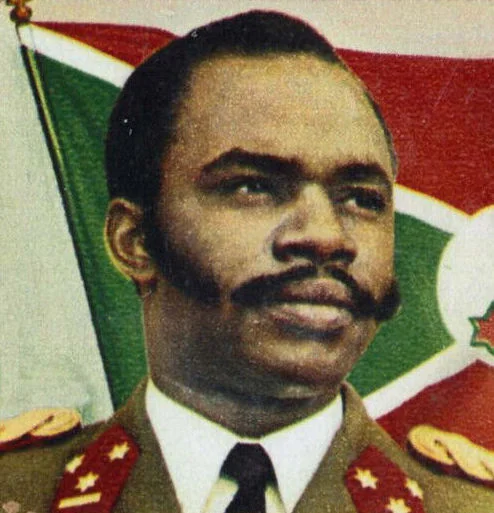
Captain Michel Micombero seized power in Burundi through a military coup, overthrowing the centuries-old monarchy. He immediately declared himself the first president of the newly proclaimed republic.
The coup eliminated traditional royal authority and established military rule over the country. Micombero’s government would face ongoing ethnic tensions and political instability throughout his reign.
Transportation and Infrastructure on November 28
1979 – Air New Zealand Flight 901 Crashes in Antarctica

Air New Zealand Flight 901, a DC-10 sightseeing flight, crashed into Mount Erebus in Antarctica, killing all 257 people aboard. The disaster shocked New Zealand and raised serious questions about polar flight safety.
The crash occurred during a scenic tour of Antarctica’s landscape in whiteout conditions. Investigation revealed navigation errors and inadequate safety protocols for polar tourism flights.
1987 – South African Airways Flight 295 Crashes

South African Airways Flight 295 crashed into the Indian Ocean, killing all 159 people on board. The Boeing 747 experienced catastrophic in-flight fire before disappearing into the ocean.
The crash investigation revealed cargo fire hazards and inadequate fire suppression systems. This disaster prompted significant improvements in aircraft fire safety and cargo handling procedures.
2016 – LaMia Flight 2933 Crashes in Colombia

LaMia Flight 2933 crashed near Medellín, Colombia, killing 71 of 77 people aboard, including members of Brazilian football club Chapecoense. The crash devastated the football world and sparked international mourning.
Investigation revealed fuel exhaustion and pilot error as primary causes. The tragedy highlighted aviation safety concerns in South American charter flight operations.
Sports and Recreation on November 28
1908 – Marianna Mine Explosion Kills 154
A catastrophic explosion rocked the Marianna mine in Pennsylvania, killing 154 miners and leaving only one survivor. The disaster highlighted dangerous working conditions in American coal mining operations.
The explosion resulted from methane gas accumulation and inadequate ventilation systems. This tragedy prompted renewed calls for improved mine safety regulations and worker protection measures.
1971 – Wasfi al-Tal Assassinated in Jordan

Jordanian Prime Minister Wasfi al-Tal was assassinated by Black September operatives of the Palestine Liberation Organization. The assassination occurred at a Cairo hotel during a diplomatic visit.
Al-Tal’s death escalated tensions between Jordan and Palestinian militant groups. His assassination marked a significant escalation in Middle Eastern political violence during this turbulent period.
2002 – Mombasa Hotel Bombing and Missile Attack

Suicide bombers destroyed an Israeli-owned hotel in Mombasa, Kenya, while accomplices unsuccessfully attempted to shoot down an Israeli airliner with surface-to-air missiles. The coordinated attacks demonstrated international terrorism’s growing sophistication.
The failed missile attack on the civilian aircraft revealed terrorists’ access to advanced military weapons. These incidents heightened global aviation security concerns and anti-terrorism measures.
Notable Births on November 28
1908 – Claude Lévi-Strauss Born
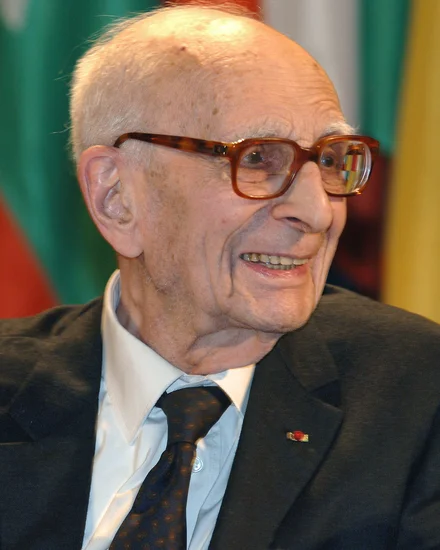
Belgian-French anthropologist Claude Lévi-Strauss was born, destined to become one of the most influential thinkers of the 20th century. His early years in Belgium and France shaped his intellectual development.
Lévi-Strauss would revolutionize anthropology through structural analysis and comparative mythology. His groundbreaking work fundamentally changed how scholars understand human culture and society.
1929 – Berry Gordy Born

American songwriter and producer Berry Gordy entered the world, later founding the legendary Motown Records. His birth in Detroit positioned him perfectly for the city’s emerging music scene.
Gordy would create the “Motown Sound” and launch careers of countless legendary artists. His record label became synonymous with American soul music and cross-racial musical appeal.
1950 – Ed Harris Born

American actor Ed Harris was born, beginning a journey toward becoming one of Hollywood’s most respected performers. His early years laid the foundation for his intense, method-acting approach.
Harris would earn multiple Academy Award nominations for his powerful dramatic performances. His dedication to authentic character portrayal made him a favorite among directors and audiences alike.
1961 – Alfonso Cuarón Born

Mexican director Alfonso Cuarón was born, destined to become an internationally acclaimed filmmaker. His childhood in Mexico City exposed him to rich cultural traditions and storytelling.
Cuarón would win Academy Awards for his innovative cinematography and directing. His films masterfully blend technical innovation with deeply human storytelling across multiple genres.
1962 – Jon Stewart Born

American comedian and television host Jon Stewart was born, later becoming one of America’s most influential satirical voices. His early years developed his sharp wit and social commentary skills.
Stewart would transform “The Daily Show” into a cultural phenomenon and trusted news source. His comedic approach to serious issues influenced an entire generation of political discourse.
Notable Deaths on November 28
1939 – James Naismith Dies
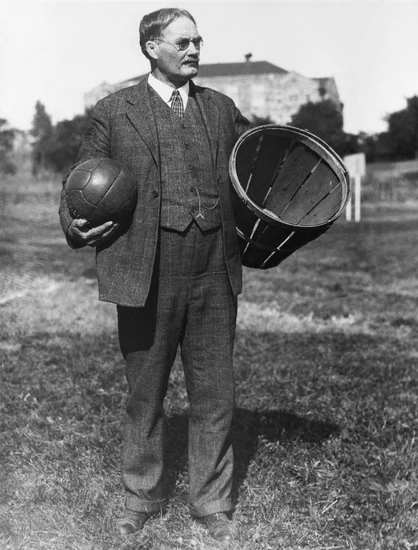
James Naismith, the Canadian-American physician who invented basketball, passed away at age 78. His revolutionary indoor sport had grown from a YMCA experiment into a global phenomenon.
Naismith witnessed basketball’s transformation from a simple winter activity into professional and Olympic competition. His invention provided healthy recreation for millions while creating an entire sports industry.
1954 – Enrico Fermi Dies

Italian-American physicist Enrico Fermi, Nobel Prize laureate and atomic age pioneer, died at age 53. His contributions to nuclear physics fundamentally changed scientific understanding and world history.
Fermi’s work on nuclear fission helped create both atomic weapons and peaceful nuclear power. His theoretical insights and experimental skills established him as one of physics’ greatest minds.
1968 – Enid Blyton Dies

English author Enid Blyton, creator of beloved children’s literature, passed away at age 71. Her prolific career produced hundreds of books that entertained generations of young readers.
Blyton’s characters like the Famous Five and Noddy became international cultural icons. Her storytelling ability made reading accessible and enjoyable for millions of children worldwide.
1994 – Jeffrey Dahmer Dies

American serial killer Jeffrey Dahmer died in prison at age 34, killed by a fellow inmate. His horrific crimes had shocked the nation and raised questions about criminal justice systems.
Dahmer’s death ended one of America’s most disturbing criminal cases. His crimes prompted significant changes in police procedures and mental health intervention strategies.
2010 – Leslie Nielsen Dies

Canadian-American actor Leslie Nielsen, comedy legend known for “The Naked Gun” series, died at age 84. His transformation from serious dramatic actor to comedy icon entertained multiple generations.
Nielsen’s deadpan delivery and perfect comedic timing made him a beloved figure in entertainment. His influence on comedy films and parody genres continues inspiring performers today.
Holidays and Observances on November 28
Independence Day (Albania)
Albania celebrates Independence Day, commemorating its 1912 declaration of independence from the Ottoman Empire. The holiday also honors Skanderbeg’s first flag raising in 1443 and the new parliamentary constitution adopted in 1998.
Albanian communities worldwide participate in cultural celebrations and patriotic displays. The day represents centuries of struggle for national sovereignty and cultural preservation.
Independence Day (Mauritania)
Mauritania observes Independence Day, marking its 1960 liberation from French colonial rule. The celebration honors the nation’s transition from colonial territory to sovereign Islamic republic.
Citizens participate in parades, cultural performances, and official ceremonies throughout the country. The holiday reinforces national identity and celebrates Mauritanian achievements since independence.
Navy Day (Iran)
Iran commemorates Navy Day, celebrating Operation Morvarid’s 1980 victory over Iraqi naval forces in the Persian Gulf. The observance honors Iranian naval supremacy and maritime defense capabilities.
Naval parades and demonstrations showcase Iran’s modern fleet and coastal defense systems. The day emphasizes Iran’s strategic importance in Persian Gulf security and maritime commerce.
Proclamation of Independence Day (Timor-Leste)
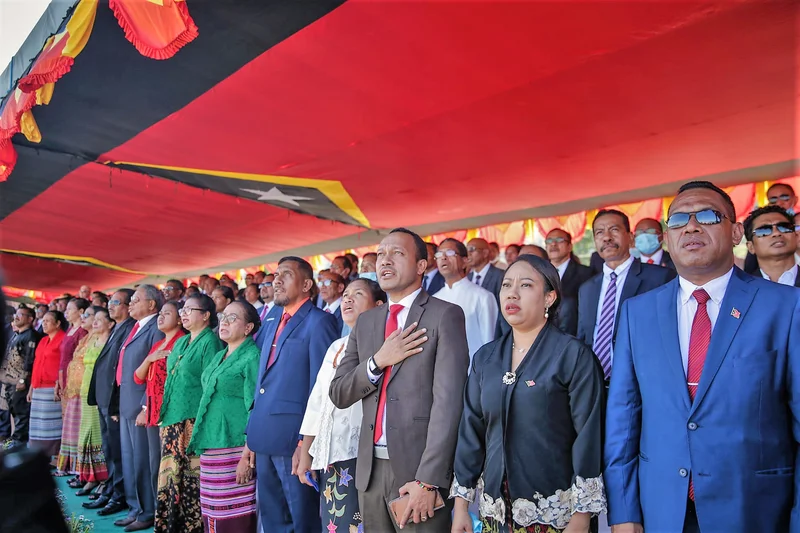
Timor-Leste celebrates its 1975 declaration of independence from Portuguese colonial rule. Though Indonesian occupation followed, this day commemorates the first assertion of East Timorese sovereignty.
The observance honors those who fought for independence and died during the Indonesian occupation. Cultural ceremonies and official events reinforce national identity and democratic values.
